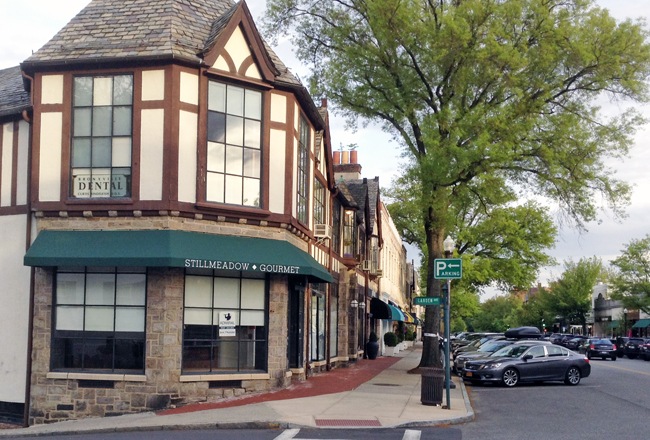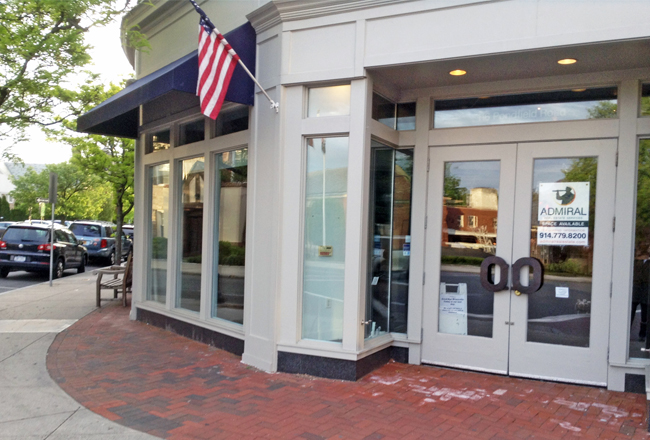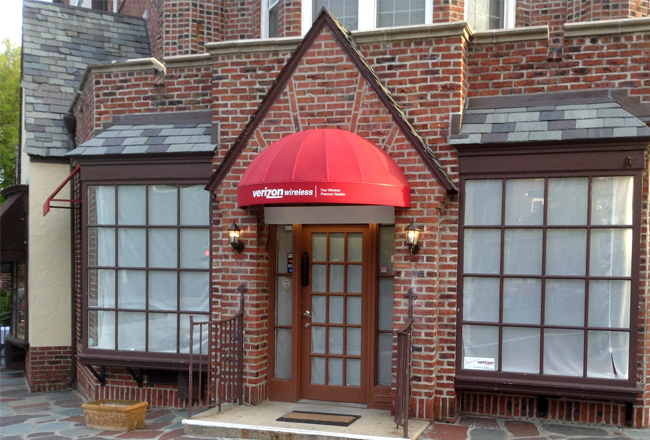Empty storefronts pose challenge for Bronxville

A stroll through Bronxville reveals the impact of volatile market forces on small-town business districts: a dozen street-level stores have closed in recent months.
Stillmeadow Gourmet and North clothing boutique, encompassing 3,400 square feet at 65 Pondfield Road in the heart of Bronxville, are closed. The fishmonger tucked away on Cedar Street is gone. The new olive oil emporium on Kraft Avenue is out of business.
But Bronxville has seen this kind of economic pressure before and adapted.
“We are going to separate fact and fiction,” said Mayor Mary Marvin. “It”™s not just about optics and perceptions and rumor mill.”
She has formed a “retail mix and marketing” committee of merchants, landlords, residents and village officials to study the problem.
Bronxville, bounded by Yonkers to the west and Mount Vernon to the south, comprises one square mile of land.
More than a hundred shops and offices are packed into a compact, easily walked, triangular business district next to a Metro-North train station. Many of the commercial buildings were built in the 1910s and feature Old World architecture.
It is one of the wealthiest places in Westchester and New York, with average family income of $381,000, according to the U.S. Census Bureau.
The obvious threat is the internet.
“Sadly, we”™re part of a national trend, the incredible rise of the internet,” Marvin said.
“If you are going to sell the same goods, pay rent for a brick and mortar store and pay taxes, it”™s hard to compete when someone can buy the same thing at midnight on the internet.”
Sales taxes add more than $8 to every $100 in sales. Rents average around $48 per square foot, plus another $10 to $15 for insurance, property taxes and maintenance, according to Jonathan Gordon, president and CEO of Admiral Real Estate Services on Pondfield Road.
Bronxville has no large corporate enterprises to offset the residential tax burden. Sales taxes brought in nearly $900,000 last year, Marvin said, and without that revenue stream homeowners would see property taxes increase by 13 percent.
She said goods may seem cheaper online, but the decline of commercial shopping districts exacts hidden costs in the form of higher property taxes and lower property values.
“There is a real linear relationship to your personal taxes, house values and quality of life.”
No one explanation fits every vacancy. Higher rents, too few shoppers, fierce competition from the internet and big box stores, retirement, fatigue and financial hardships are among the facts and fictions that the mayor”™s committee will try to sort.
“It”™s an amalgam of issues,” Marvin said.

When a real estate company vacated a prime space in a former bank building on Pondfield, Verizon closed shop on Cedar and moved to the more central location.
A sign on the door of G.A. Stipo Opticians on Cedar announces his retirement and refers customers to Trapp Opticians on Pondfield.
Citrine jewelry closed after 11 years on Park Place, but will conduct business online, in pop-up shops and trunk shows and by private appointments.
Savanna at Home furniture at 116 Pondfield is rumored to be going online.
Nancy Almeida was unable to get a year-to-year lease for Decora furnishings and interior design on Kraft Avenue and she wanted to spend more time with her grandson. So she consolidated at her Scarsdale and Greenwich locations.
“It made sense to close up and enjoy the fruits of my labor.”
Ricky Restiano is relocating his photography studio to Eastchester after nearly three years at 79 Pondfield Road because he can”™t afford the rent.
There is not enough parking and ticket writing is too aggressive, he said.
“If you get a couple of tickets you”™re not going to deal with it any more. You”™re going to go to the mall.”
Historically, Gordon said, traffic congestion and a shortage of parking spaces have been the central problems.
The old thinking was that soft-good retail ”” jewelry, clothing, music ”” generated the least amount of traffic. Services like hair and nail salons, medical offices and restaurants created more traffic and tighter parking.

So towns enacted zoning codes that required service businesses to provide more parking spaces.
Now the internet dominates soft-good categories, Gordon said. Towns need to make themselves internet-proof by attracting businesses that offer unique experiences.
“In the past, a karate studio or dance studio was looked down on,” he said. “Now they are like mini-anchors that help downtowns. Parents drop off the kids for karate, and they have an hour to kill and go shopping or eat or get their hair done.”
He said Bronxville learned the lesson during the Great Recession, by making regulations more friendly for businesses like SoulCycle, Pure Barre and Bluemercury.
“Bluemercury sells cosmetics, but there are also classes and makeup services. You can”™t get that on the internet.”
Bronxville parking will get some relief in a few weeks when a 300-car garage, including 200 public spaces, opens at the VillaBXV condominiums on Kensington Road. It will have its own entrance to the Metro-North platform and is expected to divert commuters”™ cars from storefront street spaces.
Marvin said the village is looking for ways to free up more spaces close to stores and for a place to build a parking deck.
“We need to increase the inventory.”
The mayor”™s retail committee will meet on May 17. She expects the discussion to “put a lens on what people in 2017 need and would rather buy in the village.”
Gordon said letters of intent have been signed for several of the vacant spaces.
“Bronxville right now looks a little rough,” he said.
“It”™s not as good as six months ago, but better days are ahead.”